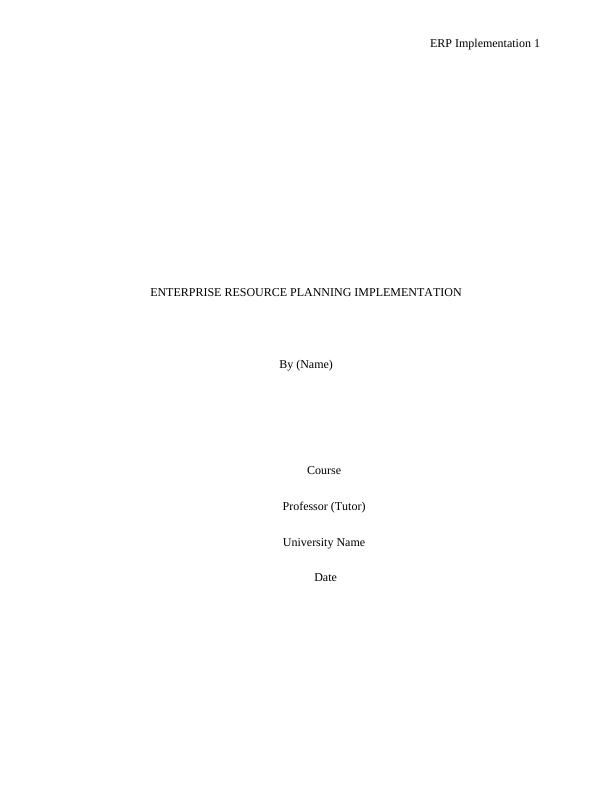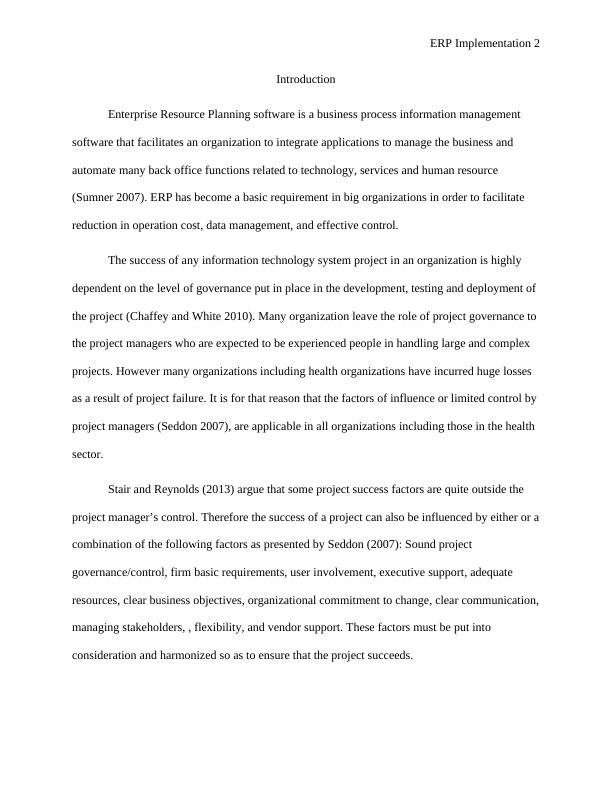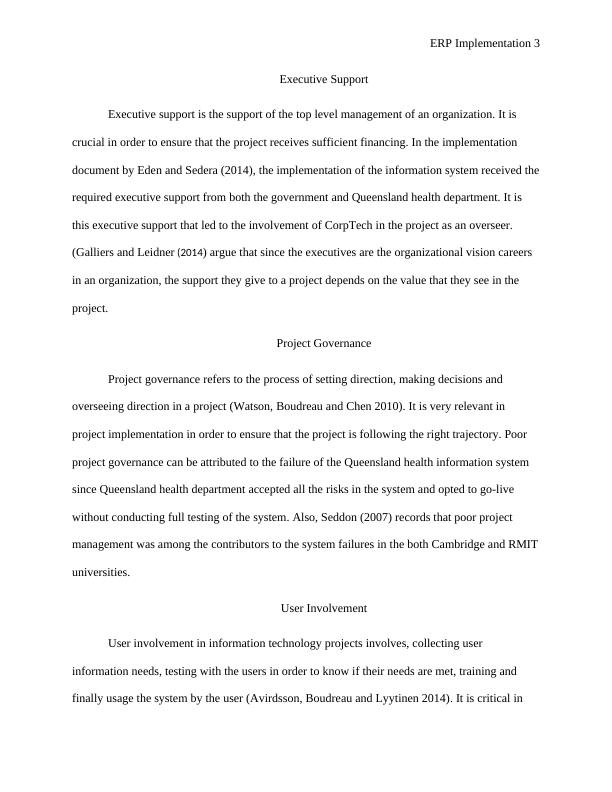Factors Influencing ERP Implementation Success: Lessons from Failed Projects
Prepare a report discussing the factors that limited control or influence by the project manager in the implementation of an ERP system in the health sector, comparing and contrasting with a case study by Eden and Sedera (2014).
8 Pages1665 Words441 Views
Added on 2023-06-11
About This Document
This article discusses the factors that influence the success of ERP implementation and highlights lessons learned from failed projects. It covers topics such as executive support, project governance, user involvement, experienced project managers, clear business objectives, firm basic requirements, organizational commitment to change, adequate resources, flexibility, clear communication, managing stakeholders, and vendor support.
Factors Influencing ERP Implementation Success: Lessons from Failed Projects
Prepare a report discussing the factors that limited control or influence by the project manager in the implementation of an ERP system in the health sector, comparing and contrasting with a case study by Eden and Sedera (2014).
Added on 2023-06-11
ShareRelated Documents
End of preview
Want to access all the pages? Upload your documents or become a member.
Comparing and analysing case studies
|6
|1836
|459
IT Project Failure: A Comparative Analysis of Two Case Studies
|9
|2490
|271
Enterprise Resource Planning (ERP) System Assignment - Solution
|9
|1856
|315
Critical Success Factors for Successful Implementation of Enterprise Resource Planning (ERP)
|4
|1707
|246
Enterprise Resource Planning (ERP) Systems Assignment
|6
|879
|88
Enterprise Resource Planning System: Assignment
|3
|1231
|168



